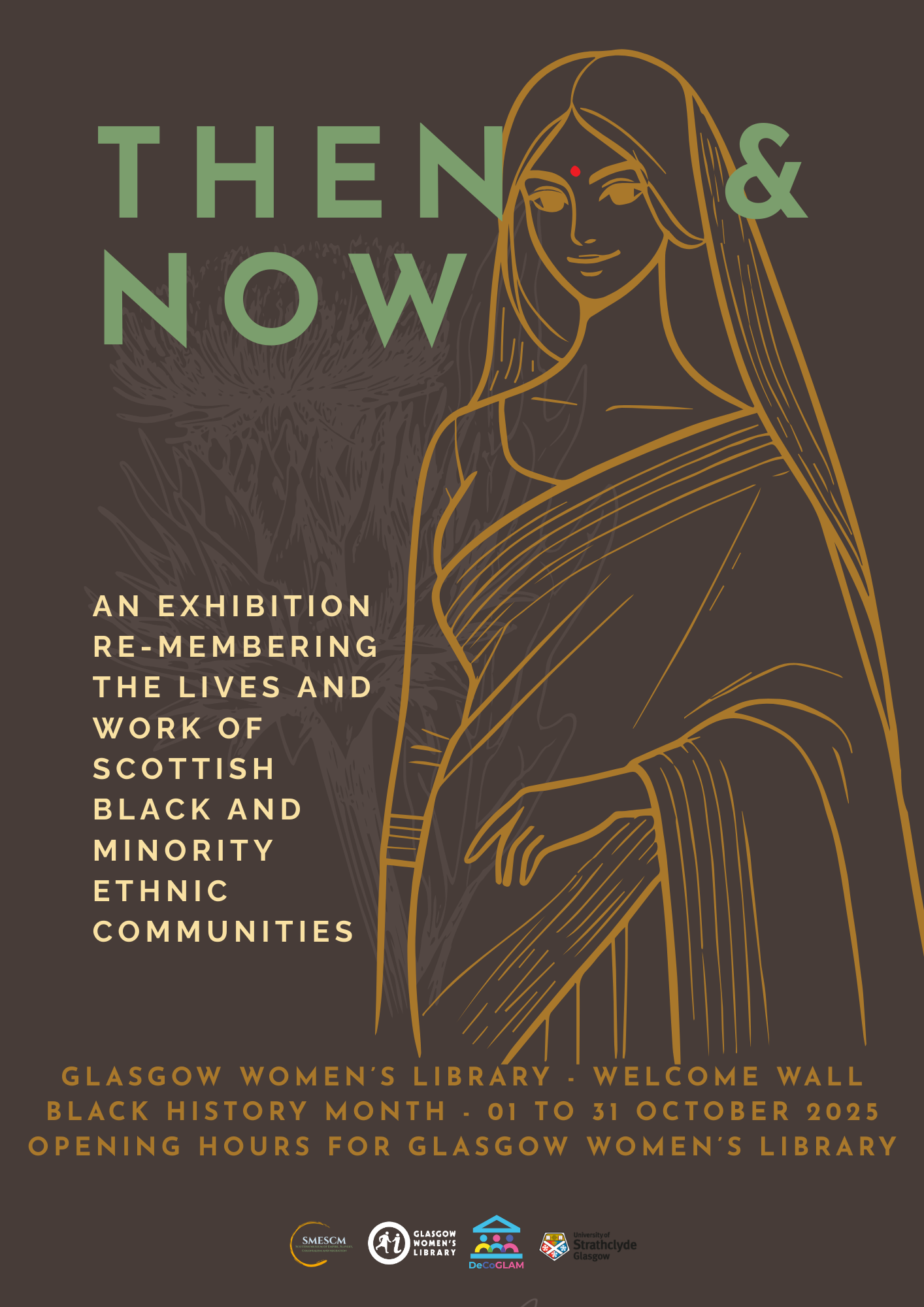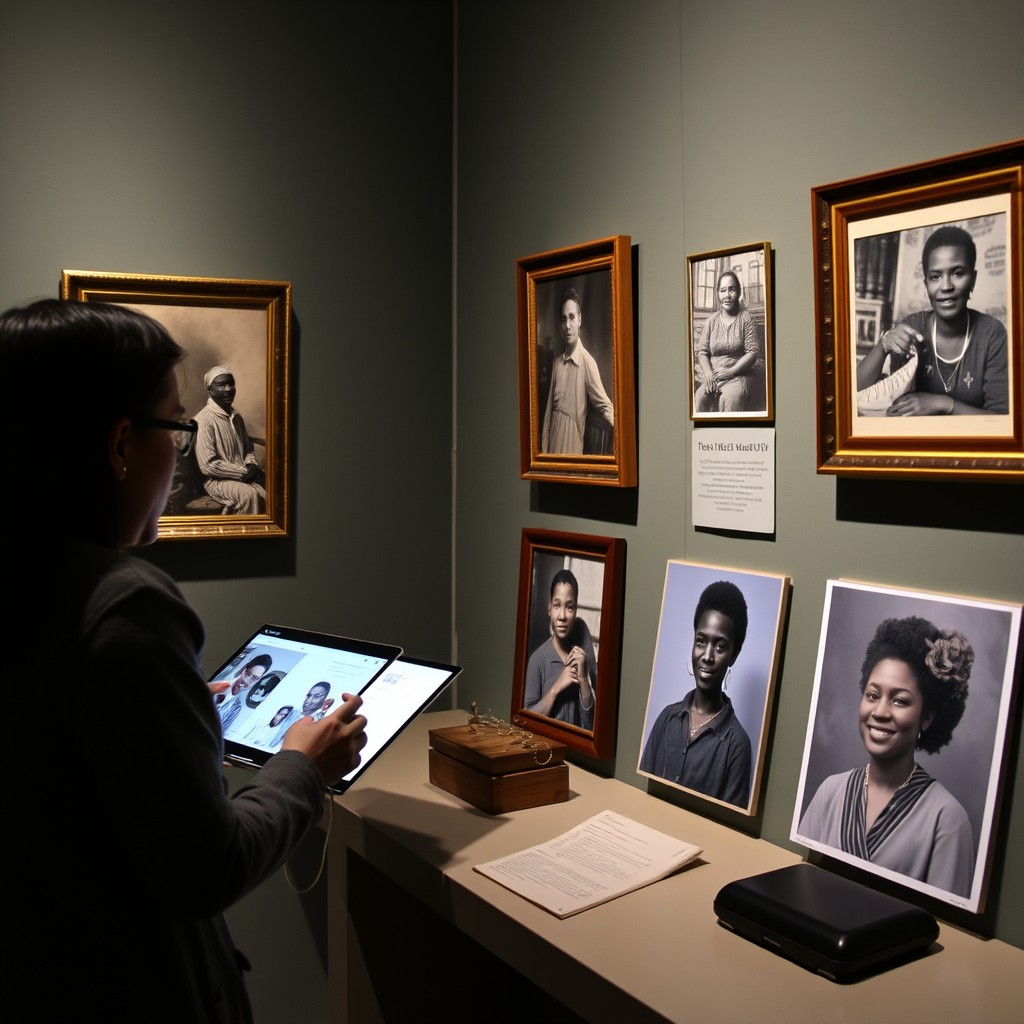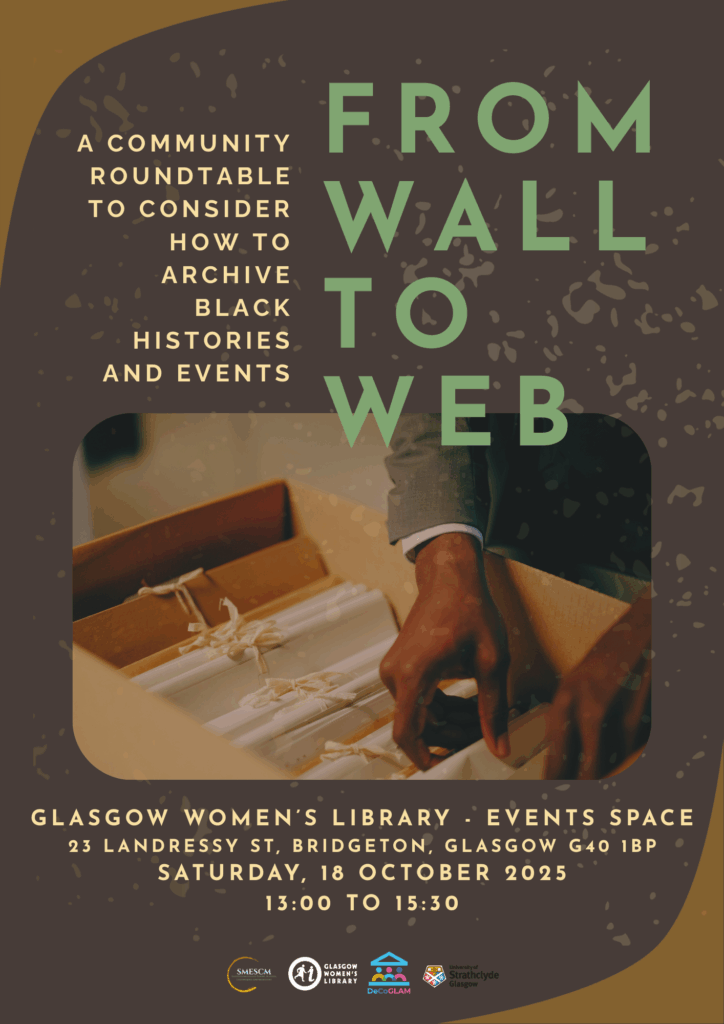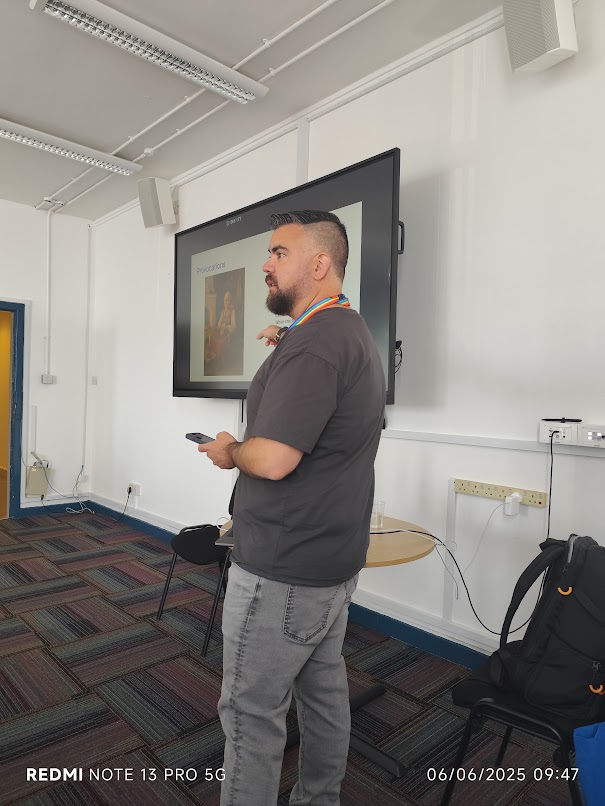October is the Black History Month and our project is part of two exciting events prepared in collaboration with The Scottish Museum of Empire, Slavery, Colonialism and Migration and the Glasgow Women’s Library
 The exhibition Re-membering the Lives and Work of BME Scottish Communities(1–31 October) will be hosted by Glasgow Women’s Library and is part of the Black History Month supported by the Glasgow City Council. You are welcome to explore the exhibition – it does not need a registration!
The exhibition Re-membering the Lives and Work of BME Scottish Communities(1–31 October) will be hosted by Glasgow Women’s Library and is part of the Black History Month supported by the Glasgow City Council. You are welcome to explore the exhibition – it does not need a registration!
And on 18 October 2025 we will host the round table From Wall to Web: How to Archive Black History & Belonging Events?
Why this round table and why now?
Throughout the recent years, Scotland hosted numerous exhibitions and other events dedicated to Black history, migration, communities and belonging. Information on these events, their key messages and their impact on the wider society has not been systematically collected and preserved. The Scottish Museum of Empire, Slavery, Colonialism and Migration is interested in exploring how the memory of such events will not be lost, and the ongoing initiatives of communities will continue their life in a digital archive.
This round table will bring together a panel of practitioners, academics and citizens to discuss a wide range of questions: what to preserve? How? When? For whom? It focuses on exhibitions and other relevant events by and about Black and other ethnic/migrant? communities in Scotland, and the practical steps for creating digital archives that serve those communities first.
We will explore:
The Scottish Museum of Empire, Slavery, Colonialism and Migration is interested in exploring how the memory of such events will not be lost, and the ongoing initiatives of communities will continue their life in a digital archive.
- What to capture—programmes and run‑sheets, recordings, transcripts, posters, photos, wall text, social media, artist/speaker files, audience responses, co‑curation outputs and oral histories—and how to document decisions so others can reuse and build on the work.
- Why archive (visibility, accountability, cultural memory, education, advocacy);
- For whom archives are made (participating Black communities, artists and speakers; future curators; learners; wider publics);
- How to curate with care (consent, credit, community‑preferred language; platforms and metadata; preservation and sustainability).


